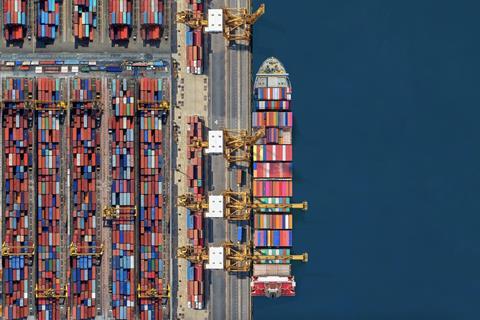A survey of more than 900 European companies by AP Moller-Maersk reveals that a significant majority of cargo owners expect current supply chain volatility to persist for at least another 12-24 months, with businesses actively diversifying sourcing strategies to counter ongoing challenges

Current disruptions in global supply chains show no signs of abating, and likely won’t for the foreseeable future.
That is according to the results of a new AP Moller-Maersk survey, conducted among its European customer base.
Maersk said the findings reveal a ”significant majority” of cargo owners expect the current volatile environment to persist for at least another 12-24 months.
The survey, which gathered insights from over 900 companies across Europe, highlights the continued strain on supply chains amid geopolitical tensions, shifting trade policies and tariff uncertainties.
More than 78 per cent of the supply chain professionals surveyed said they anticipate that geopolitical dynamics, trade tariffs, and international trade regulations will impact their operations over the next one to two years.
Nearly half (48 per cent) expressed “deep concern” about the geopolitical climate, and four out of five recognised supply chain challenges as a factor impacting their business growth.
To counter these challenges, businesses are actively diversifying their sourcing strategies.
Three out of four respondents indicated they are either already sourcing from multiple geographies or plan to do so – a notable increase from Maersk’s 2024 survey, where only 53 per cent were considering new sourcing locations.
Furthermore, four out of five businesses are strengthening the relationship with their logistics provider and key suppliers; three out of five businesses are investing in supply chain visibility and agility to increase resilience; and three out of four businesses said they’re adapting to alternative trade routes.
”European businesses certainly haven’t had it all their own way over the past five years, and the ever-changing global environment facing them is definitely here to stay for the near future,” said Aymeric Chandavoine, president Europe at AP Moller-Maersk.
”Ultimately, though, it’s about turning the prevailing uncertainty into opportunities.
”One shared attitude among our customers has become abundantly clear: now is not the time to lament the cards we’ve been dealt – now is the time to take action and grow,” Chandavoine urged.
”More and more European businesses are refusing to sit back and wait for volatility to ease.
“Instead, they are looking to build smarter, more resilient networks that support their ambitions for growth,” he noted.
Waiting and doing nothing is the worst thing cargo owners can do, according to Lars Karlsson, Maersk’s global head of trade and customs consulting.
Tariffs stand for the most recent heavy disruption for global trade, and Karlsson and Maersk’s global team of 2,700 customs brokers helped cargo owners across the globe stay on top of developments when the US tariffs hit this year.
“That left many supply chain managers without sleep at night,” he said. “However, with the right tools and partners you can control even such a black swan event.
“You need to be proactive and become more agile in a geopolitical environment like today.
”To achieve this, you need full control of your global customs data, have it digitally in one central platform where you can blend it with the data of sudden tariff changes as they happen,” Karlsson pointed out.
That tariffs will remain top of the agenda going forward is strongly supported by the survey’s results, Maersk said.
The top three challenges that European businesses expect from evolving geopolitics are fluctuations in import and export costs, increased trade tariffs, and uncertainty in global trade policies.



